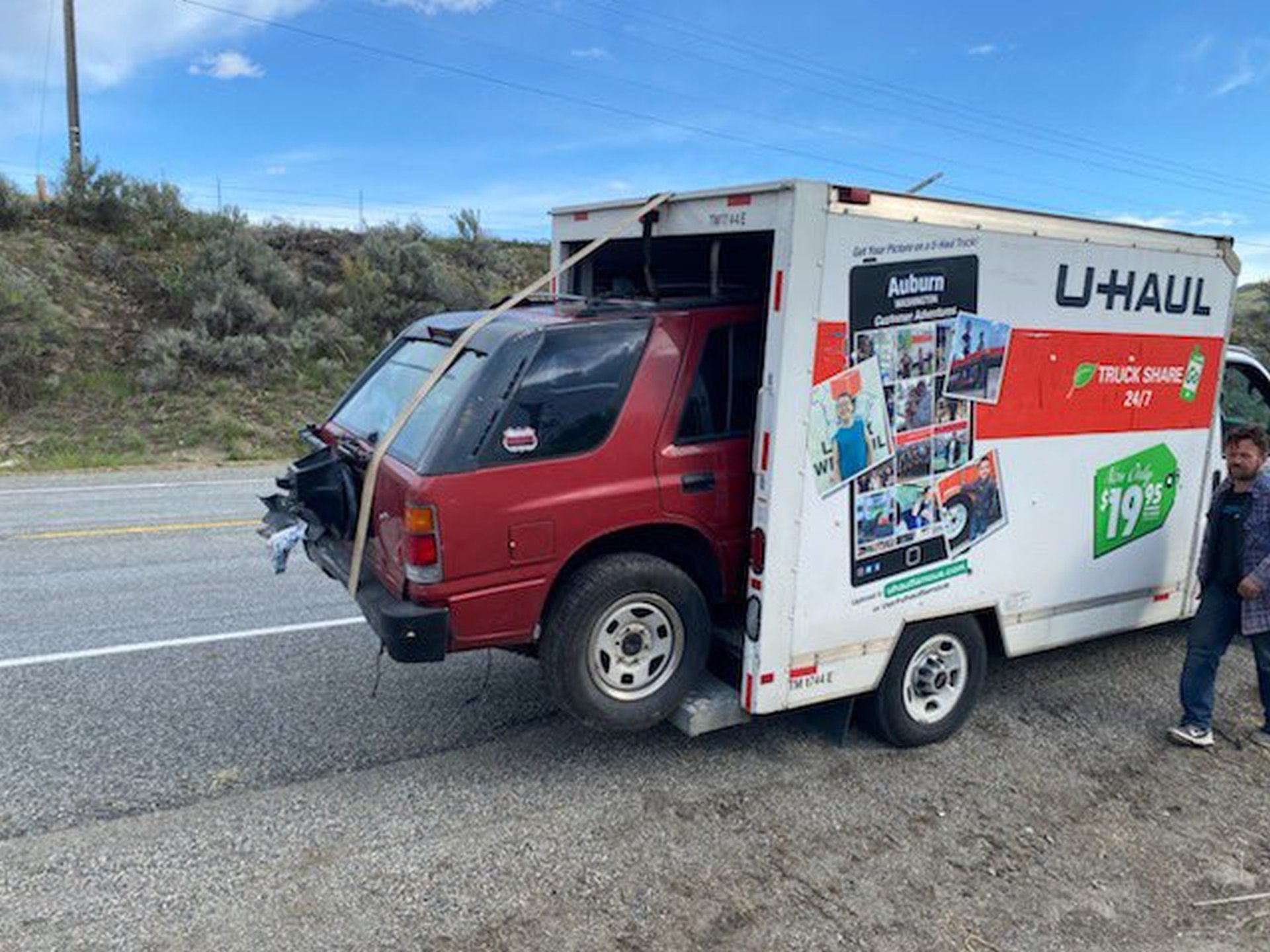Haul Truck Operator Training: Your Comprehensive Guide to a Powerful Career cars.truckstrend.com
In the vast landscapes of mining, construction, and quarrying, monumental machines move mountains of material with precision and power. At the heart of these operations are haul trucks, colossal vehicles designed to transport immense loads across challenging terrains. Operating these behemoths is a highly specialized skill, demanding not just strength but also acute awareness, technical knowledge, and unwavering discipline. This is where haul truck operator training becomes not just important, but absolutely essential.
Haul truck operator training is a rigorous, multi-faceted educational process designed to equip individuals with the theoretical knowledge, practical skills, and safety consciousness required to operate heavy-duty off-highway haul trucks safely and efficiently. It’s a gateway to a rewarding career in an industry that underpins global infrastructure and resource extraction, offering significant responsibilities and often attractive compensation. For anyone looking to enter this dynamic field, understanding the nuances of haul truck operator training is the first, crucial step.
Haul Truck Operator Training: Your Comprehensive Guide to a Powerful Career
What is a Haul Truck Operator?
A haul truck operator is a skilled professional responsible for driving large, off-highway vehicles that transport materials like ore, overburden, gravel, sand, or other bulk commodities within mines, quarries, construction sites, and large industrial facilities. These trucks vary in size, from those carrying tens of tons to ultra-class giants capable of hauling over 400 tons in a single load. The operator’s role is critical for maintaining site productivity, adhering to strict safety protocols, and ensuring the smooth flow of materials.
Why is Specialized Haul Truck Operator Training Essential?
The sheer size, complexity, and operational environment of haul trucks necessitate specialized haul truck operator training. Here’s why it’s indispensable:
- Safety First: Haul trucks operate in challenging environments with heavy machinery, steep grades, and other vehicles. Proper haul truck operator training instills critical safety protocols, hazard identification, and emergency response procedures, drastically reducing the risk of accidents, injuries, and fatalities.
- Operational Efficiency & Productivity: Skilled operators move more material in less time, optimize fuel consumption, and minimize wear and tear on expensive equipment. Effective haul truck operator training directly translates to increased productivity and profitability for employers.
- Equipment Longevity: Improper operation can lead to significant mechanical stress, breakdowns, and premature equipment failure. Training teaches operators best practices for machine care, pre-operational checks, and smooth operation, extending the lifespan of these multi-million-dollar assets.
- Compliance and Regulations: The mining and construction industries are heavily regulated. Haul truck operator training ensures operators are aware of and comply with all local, national, and international safety and environmental regulations.
- Career Advancement: A certified and well-trained operator is a valuable asset, opening doors to higher-paying roles, supervisory positions, and opportunities in various global projects. Continuous haul truck operator training and upskilling are vital for career progression.


Key Components of Haul Truck Operator Training Programs
Comprehensive haul truck operator training typically involves a blend of theoretical instruction, simulated practice, and hands-on experience.
1. Classroom/Theoretical Training
This foundational phase covers the essential knowledge base for safe and efficient operation. Topics include:

- Vehicle Systems: Understanding the truck’s components (engine, transmission, braking systems, hydraulics, steering, electrical systems).
- Safety Protocols: Site-specific safety rules, personal protective equipment (PPE), lockout/tagout procedures, confined space entry, and working at heights.
- Site Procedures: Traffic management plans, haul road etiquette, communication protocols (radio usage, hand signals), and material handling procedures.
- Load Management: Principles of weight distribution, proper loading techniques, estimating load capacities, and preventing overloads.
- Emergency Response: Fire suppression, evacuation procedures, first aid basics, and responding to mechanical failures or accidents.
- Environmental Awareness: Understanding environmental regulations, dust control, and minimizing environmental impact.
- Legislation and Compliance: Relevant industry standards, health and safety acts, and company policies.
2. Simulator Training
Modern haul truck operator training programs heavily utilize advanced simulators. These sophisticated tools replicate the real-world operating environment with high fidelity, offering numerous benefits:
- Risk-Free Practice: Operators can practice complex maneuvers, handle emergency scenarios, and navigate challenging terrains without risking actual equipment or personnel.
- Exposure to Varied Conditions: Simulators can mimic different weather conditions (rain, snow, fog), times of day (day/night), and site specificities (steep grades, tight turns).
- Performance Monitoring: Instructors can track an operator’s performance, identify weaknesses, and provide targeted feedback.
- Cost-Effective: Simulators reduce fuel consumption, wear and tear on actual trucks, and the need for extensive supervision during initial training.
- Repetitive Practice: Allows operators to repeatedly practice critical skills until proficiency is achieved.
3. Practical/On-the-Job Training (OJT)
This is the hands-on phase where theoretical knowledge and simulator practice are applied in a real-world setting. Under the direct supervision of experienced instructors or mentors, trainees learn:
- Pre-Operational Checks: Daily inspections of the truck’s vital systems before operation.
- Start-up and Shut-down Procedures: Correct sequence for bringing the truck to life and safely powering it down.
- Driving Techniques: Mastering acceleration, braking, steering, and maneuvering in various conditions.
- Loading and Dumping: Positioning the truck correctly for loading by excavators or loaders, and safe dumping procedures at designated areas.
- Haul Road Navigation: Driving on various grades, curves, and surfaces, maintaining appropriate speeds, and interacting with other site traffic.
- Troubleshooting: Identifying minor mechanical issues and reporting them effectively.
- Communication: Effective radio communication with dispatch, loaders, and other operators.
4. Assessment and Certification
Upon completion of all training phases, candidates undergo comprehensive assessments, which may include written exams, simulator performance evaluations, and practical driving tests. Successful completion leads to certification, validating the operator’s competence and readiness for the job.
Prerequisites for Haul Truck Operator Training
While requirements can vary by training provider and employer, common prerequisites include:
- Age: Minimum 18 years old (often 21 for some international roles).
- Driver’s License: A valid standard driver’s license (often a Class 5 or equivalent, though a Commercial Driver’s License – CDL – is typically not required for off-highway trucks, it can be an advantage).
- Education: High school diploma or GED equivalent is usually preferred, or demonstrated literacy and numeracy.
- Physical Fitness: The ability to climb, sit for extended periods, and possess good vision and hearing. A medical examination and drug screening are often mandatory.
- Communication Skills: Basic English proficiency for understanding instructions and communicating effectively.
Choosing the Right Haul Truck Operator Training Program
Selecting the appropriate haul truck operator training program is crucial for a successful career. Consider the following:
- Accreditation: Ensure the program is accredited by relevant industry bodies or government agencies.
- Instructor Experience: Look for programs taught by instructors with extensive real-world haul truck operating experience.
- Curriculum Comprehensiveness: Does the program cover all theoretical, simulator, and practical aspects thoroughly?
- Equipment & Simulators: Are the training trucks modern and well-maintained? Are the simulators state-of-the-art?
- Practical Hours: How many hours of actual hands-on driving will you receive? More practical time is generally better.
- Job Placement Assistance: Does the training provider offer connections to potential employers or career counseling?
- Cost and Duration: Compare costs and program lengths, but prioritize quality over the cheapest or quickest option.
The Training Journey: A Step-by-Step Guide
- Research & Enrollment: Identify reputable haul truck operator training programs and apply.
- Theoretical Foundation: Begin with classroom sessions covering safety, vehicle systems, and site procedures.
- Simulator Immersion: Transition to high-tech simulators to build initial skills and confidence in a safe environment.
- Practical Application: Move to actual haul trucks on a dedicated training ground or active site under strict supervision.
- Assessment & Certification: Demonstrate your acquired skills through written and practical tests.
- Job Search & Employment: Utilize your certification and the program’s resources to find employment.
- Continuous Learning: Even after certification, stay updated with new technologies, safety standards, and operational best practices. Many companies provide ongoing internal haul truck operator training.
Important Considerations & Challenges
- Safety Culture: The industry demands a strong safety culture. Operators must be vigilant and proactive in identifying and mitigating risks.
- Environmental Factors: Haul truck operators often work in challenging conditions – extreme heat or cold, dust, mud, and sometimes remote locations.
- Shift Work: Many operations run 24/7, requiring operators to work rotating shifts, including nights, weekends, and holidays.
- Technological Integration: Modern haul trucks are increasingly equipped with advanced technology (GPS, autonomous features, telematics). Operators must be adaptable and willing to learn new systems.
- Mental Fortitude: Operating such large machinery requires focus, concentration, and the ability to remain calm under pressure.
Benefits of Certified Haul Truck Operators for Employers
For companies, investing in rigorous haul truck operator training yields significant returns:
- Reduced Accidents & Incidents: Trained operators are less prone to errors, leading to fewer costly accidents and improved safety records.
- Increased Productivity: Efficient operators ensure optimal material movement, directly impacting production targets.
- Lower Maintenance Costs: Proper operation minimizes wear and tear on expensive machinery, reducing repair costs and downtime.
- Regulatory Compliance: Certified operators help companies meet industry standards and avoid penalties.
- Enhanced Reputation: A well-trained workforce contributes to a company’s reputation for safety and operational excellence.
Career Outlook and Opportunities
The demand for skilled haul truck operators remains consistently strong across various sectors globally. Opportunities exist in:
- Mining: Open-pit and surface mines for coal, iron ore, copper, gold, diamonds, etc.
- Construction: Large infrastructure projects like dam building, highway construction, and major earthmoving.
- Quarrying: Extraction of aggregates, limestone, and other materials for construction.
- Port Operations: Moving bulk cargo within large port facilities.
With experience, operators can advance to roles such as lead operator, trainer, supervisor, or even move into maintenance or management positions within the heavy equipment industry. The specialized nature of haul truck operator training ensures a relatively stable and well-compensated career path.
Conclusion
Haul truck operator training is more than just learning to drive a big vehicle; it’s an intensive program that cultivates discipline, technical mastery, and an unwavering commitment to safety. It is the cornerstone of a successful career in heavy equipment operation, providing individuals with the skills to navigate challenging environments, move immense loads, and contribute significantly to vital industries. For those with a desire for hands-on work, a respect for powerful machinery, and a commitment to safety, comprehensive haul truck operator training offers a direct path to a rewarding and impactful profession that literally helps build the world around us.
Haul Truck Operator Training: Estimated Program Costs
Please note: These figures are estimates and can vary significantly based on location, training provider, program duration, inclusions (e.g., accommodation, certifications), and the specific type of truck training offered (e.g., rigid vs. articulated, specific models). Always contact training providers directly for the most accurate and up-to-date pricing.
| Training Type | Duration (Approx.) | Estimated Cost Range (USD) | Key Inclusions/Notes |
|---|---|---|---|
| Introductory/Basic Certification | 1-2 Weeks | $2,000 – $5,000 | Classroom theory, simulator practice, basic practical time on smaller haul trucks. Focus on fundamentals. |
| Comprehensive Certification | 3-6 Weeks | $5,000 – $15,000 | Extensive theory, significant simulator hours, more practical time on various truck types. Often includes safety certifications. |
| Advanced/Specialized Training | 1-2 Weeks | $3,000 – $8,000 | For experienced operators seeking to upskill on specific truck models, autonomous systems, or complex operations. |
| Employer-Sponsored Training | Varies | Often No Cost to Trainee | Companies may offer in-house training or sponsor external programs for new hires or existing employees. |
| Refresher Training | 1-3 Days | $500 – $2,000 | For certified operators to renew skills or adapt to new site procedures/equipment. |
Frequently Asked Questions (FAQ) about Haul Truck Operator Training
Q1: How long does haul truck operator training typically take?
A1: Basic certification programs can range from 1 to 2 weeks, while more comprehensive programs can last 3 to 6 weeks. Some employer-specific training might be longer, integrating into an apprenticeship or on-the-job mentorship.
Q2: Do I need a Commercial Driver’s License (CDL) to operate a haul truck?
A2: Generally, no. Haul trucks are considered "off-highway" vehicles and do not operate on public roads, so a standard CDL is usually not required. However, some employers might prefer or require a CDL as an indicator of driving proficiency and safety awareness, and a standard Class 5 (or equivalent) driver’s license is almost always mandatory.
Q3: What is the typical salary for a haul truck operator?
A3: Salaries vary widely based on location, industry (mining often pays more than construction), experience, and the size of the operation. Entry-level operators might start around $45,000 – $60,000 annually, while experienced operators in remote mining sites can earn $80,000 – $120,000+ per year, often with additional benefits and living allowances.
Q4: Is haul truck operating a dangerous job?
A4: While operating heavy machinery carries inherent risks, modern haul truck operator training emphasizes safety above all else. With proper training, adherence to safety protocols, and a vigilant attitude, the risks can be significantly mitigated. Accidents are rare but can be severe, highlighting the importance of thorough training and a strong safety culture.
Q5: What are the job prospects after completing haul truck operator training?
A5: Job prospects are generally strong, particularly in regions with active mining, quarrying, and large-scale construction projects. There is a consistent demand for skilled and certified operators, and many training programs have partnerships with industry employers to help with job placement.
Q6: Can women become haul truck operators?
A6: Absolutely! The industry is actively promoting diversity and inclusion. Many women are successful and highly valued haul truck operators, proving that physical strength is less critical than skill, precision, and adherence to safety protocols.




